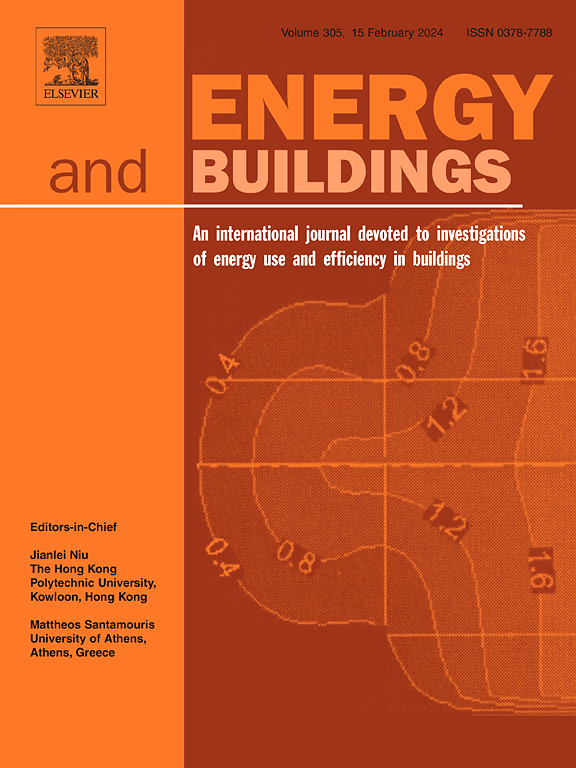基于物理约束广义学习系统的冷水机组外推情景在线动态模型
IF 6.6
2区 工程技术
Q1 CONSTRUCTION & BUILDING TECHNOLOGY
引用次数: 0
摘要
冷水机组占中央空调制冷站能耗的大部分。然而,传统模型缺乏较强的样本外泛化,难以准确反映多种工况下制冷机性能的变化。因此,缺乏可靠的多工况性能数据来支持冷水机组的节能调节和制冷站控制的优化。为了解决这一问题,本研究通过在广义学习框架中引入误差反向传播机制和定制的基于物理的损失函数,提出了一种物理约束广义学习系统(PCBLS)方法。这种方法增强了冷水机模型的样本外泛化,能够根据现有条件的测量数据准确预测未知运行条件下的冷水机性能。其核心思想是确保模型对未知条件的预测与物理定律保持一致。实验结果表明,与没有样本外泛化增强的方法相比,该方法将MAE降低了53.38%,RMSE降低了55.47%,R2提高了19.62%,而将基于自定义物理的损失降低了约99.37%。此外,该方法在实现快速训练速度的同时保持高精度。本文章由计算机程序翻译,如有差异,请以英文原文为准。
An online dynamic model based on Physical-Constraint Broad Learning System for extrapolation scenarios of chillers
Chillers account for the majority of energy consumption in central air-conditioning refrigeration stations. However, conventional models lack strong out-of-sample generalization, making it difficult to accurately reflect chiller performance variations under multiple operating conditions. Consequently, there is a lack of reliable multi-condition performance data to support energy-efficient regulation of chillers and optimization of refrigeration station control. To address this issue, this study proposes a physics-constrained broad learning System (PCBLS) method by introducing an error backpropagation mechanism and a customized physics-based loss function into the broad learning framework. This approach enhances the out-of-sample generalization of chiller models, enabling accurate prediction of chiller performance under unseen operating conditions based on measured data from existing conditions. The core idea is to ensure that the model’s predictions for unknown conditions remain consistent with physical laws. Experimental results demonstrate that, compared to methods without out-of-sample generalization enhancement, the proposed approach reduces MAE by 53.38%, RMSE by 55.47%, and improves R2 by 19.62%, while decreasing the custom physics-based loss by approximately 99.37%. Additionally, the method maintains high accuracy while achieving fast training speeds.
求助全文
通过发布文献求助,成功后即可免费获取论文全文。
去求助
来源期刊

Energy and Buildings
工程技术-工程:土木
CiteScore
12.70
自引率
11.90%
发文量
863
审稿时长
38 days
期刊介绍:
An international journal devoted to investigations of energy use and efficiency in buildings
Energy and Buildings is an international journal publishing articles with explicit links to energy use in buildings. The aim is to present new research results, and new proven practice aimed at reducing the energy needs of a building and improving indoor environment quality.
 求助内容:
求助内容: 应助结果提醒方式:
应助结果提醒方式:


